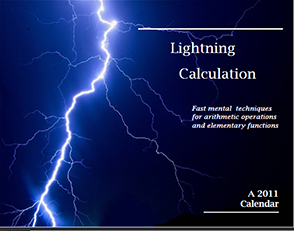This morning I ran across a couple articles on minimalism:
The former has a sense of humor; the latter does not. The former contains thoughtful criticism; the latter is a knee-jerk reaction. The former makes an interesting argument; the latter quibbles about definitions.
The former article is by Vivek Haldar. I cannot tell who wrote the latter.
Here’s an excerpt from Haldar’s article:
The zenith … is a calm geek, sitting in a bare room with a desk upon which sits only a MacBook Air, his backpack of possessions on one side, the broadband Internet cable available but unplugged, fingers ready to type into the empty white screen of a minimalist editor.
I think that’s pretty funny. And I would hope that minimalists would be able to get a chuckle out of it.
But Haldar does not just lampoon hipster minimalism. He argues that you need periods of stimulation and clutter to be creative. He also argues that minimalism has its place.
Now I agree with most of the premises of the minimalists … My gripe is with the way they sell it as a way of life. It’s much more valuable as a periodic phase of life.
Minimalism cannot be a long-term strategy, but it makes an excellent short-term tactic.
The second article essentially argues that Haldar has the definition of minimalism wrong.
Minimalism, at its core, is the process of prioritizing your life and working towards concrete goals without giving in to distraction. … Like any school of thought with a certain critical mass, there is dissent and corruption among the ranks.
Who can find fault with prioritizing your life, working toward concrete goals, and avoiding distraction? And who wants to defend corruption? But this is just quibbling about definitions. By contrast, Haldar makes an argument independent of such a definition. Haldar argues that a certain set of attitudes and behaviors — however you want to label them — are not conducive to sustained creativity.
Here are some ideas I threw out a while ago on defining minimalism.
“Minimal” literally means an extreme. I appreciate moderate minimalists, though strictly speaking “moderate minimalist” is a contradiction in terms. A more accurate but unwieldy name for minimalists might be “people who are keenly aware of the indirect costs of owning stuff.”
… you could define a minimalist as someone who wants to eliminate non-essential possessions … But by that definition, Donald Trump would be a minimalist if he believes everything he owns is essential.
Generic discussions of minimalism are fluff. Haldar’s argument is more substantial because he makes a specific suggestion.
Related posts


